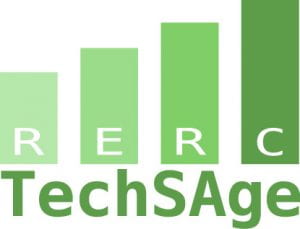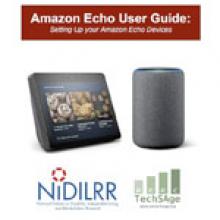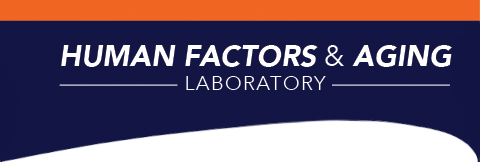The Human Factors and Aging Laboratory focuses on understanding the fundamentals of human behavior in the context of technology interactions. Our research areas include healthcare technologies; design for aging; technology acceptance; human-automation interaction; aging-in-place; human-robot interaction; cognitive aging; aging with disabilities; and skill acquisition and training.
The laboratory is funded in part by: the National Institutes of Health as part of the Center for Research and Education on Aging and Technology Enhancement (www.create-center.org); and the Administration for Community Living through the Rehabilitation Engineering Research Center on Technologies to Support Successful Aging with Disability (www.techsage.gatech.edu).
What is Successful Aging?
Embedded in the overarching philosophy of the Human Factors and Aging Laboratory is the belief in the importance of understanding successful aging. Our research activities are motivated by that goal. The concept of successful aging refers to factors that allow individuals to function effectively and successfully as they age. Our research does not emphasize loss of function associated with aging; rather, we wish to understand factors that are responsible for retaining, or even enhancing, a person’s ability to function in later life. Our research efforts are conducted within the framework of human factors science and application. As such, our research continues to contribute to the fundamental, scientific knowledge concerning adults’ (of all ages) capabilities and limitations. We are particularly interested in understanding perceptual, cognitive, and movement control capabilities and limitations. Because of the human factors focus, we strive to apply that scientific knowledge to better design products, environments, and training programs. Through application of our scientific data we hope to accomplish the goal of helping each other enjoy the added longevity that people experience in today’s world.
Sponsors

Center for Research and Education on Aging and Technology Enhancement (CREATE) is funded by the National Institutes of Health (National Institute on Aging).

The Rehabilitation Engineering Research Center on Technologies to Support Successful Aging with Disability (RERC TechSAge) is funded by the Department of Health and Human Services (National Institute on Disability, Independent Living, and Rehabilitation Research).






